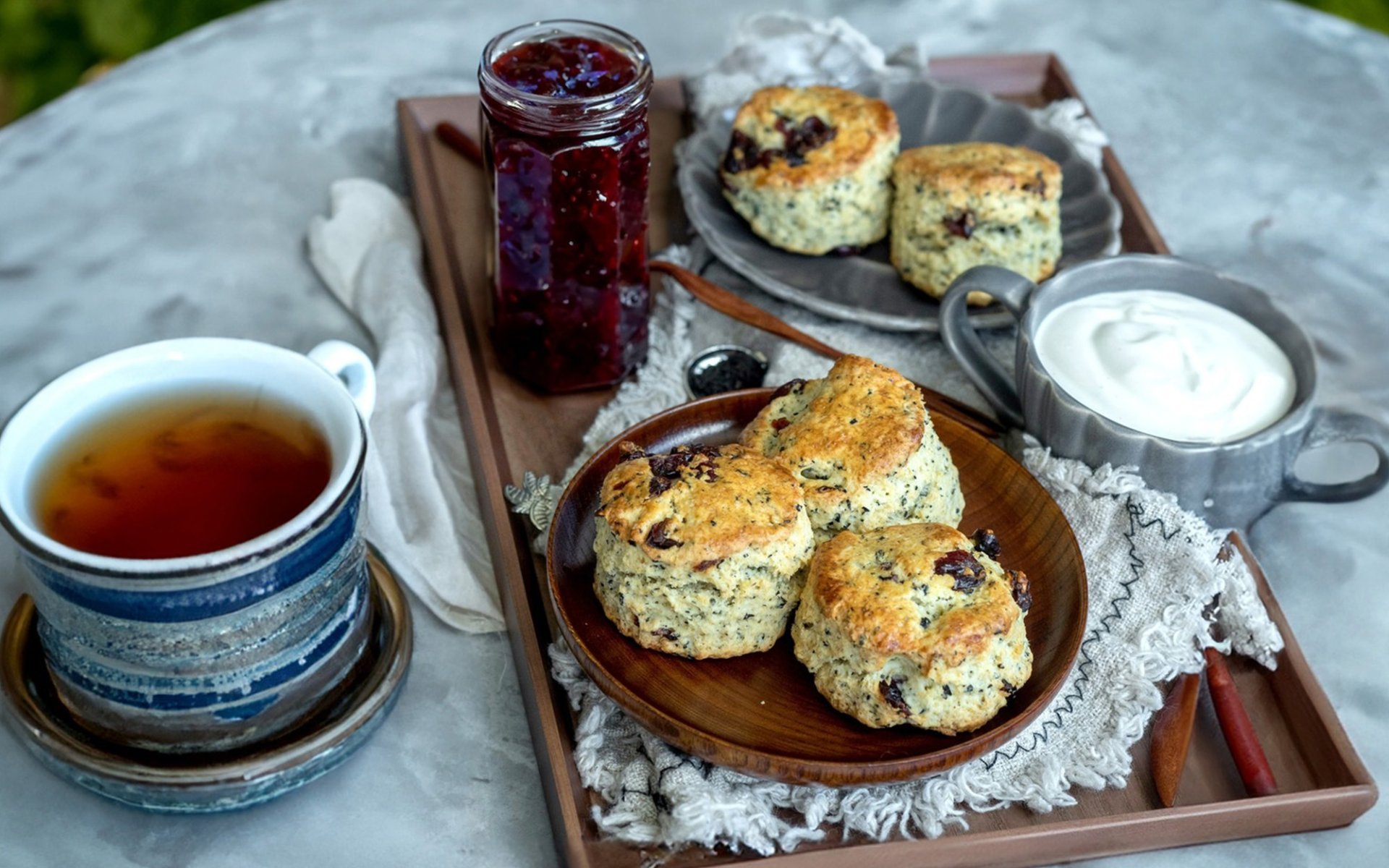Scone

In the afternoon in England, the fragrant aroma of fine tea often mingles with a warm and inviting atmosphere. These scenes are familiar images of the British Afternoon Tea culture. But the charm of afternoon tea isn't just about the tea itself; an indispensable accompaniment is the Sconea crumbly baked good that enhances the afternoon tea experience, making it even more complete and delightful. Today, Rimping Supermarket invites you to retrace the history and delve deeper into the allure of this classic pastry.
Obscure Origins: From Scottish "Bannocks" to 16th-Century Scones
The exact origins of the Scone are somewhat obscure, but it is widely believed to have begun in Scotland during the medieval period, around the 16th century. In earlier times, Scones were known as Bannocks. Unlike modern scones that use wheat flour, Bannocks of that era primarily used oats as their main ingredient. They were typically large, flat, round cakes, often baked on a flat griddle or hot stone, and then cut into triangular pieces, much like a pizza. They were commonly served with meals or as a simple snack for farmers needing sustenance.
Later, in subsequent eras, Scones evolved with the addition of baking powder to the recipea significant innovation at the time. This change allowed Scones to develop a lighter and fluffier texture, differing from the denser Bannocks. Furthermore, other key ingredients such as butter, sugar, and eggs were added, eventually leading to the perfected recipe that resulted in the soft, fluffy Scone we know and love today.
A Turning Point to Popularity: From a Duchess's Hunger to Afternoon Tea
In the 19th century, Scones began to gain increasing popularity, becoming an integral part of British culture. A widely circulated legend concerning the beginning of Afternoon Tea and the rise of Scone's popularity dates back to the 1840s. Anna Maria, The Duchess of Bedford, often felt hungry in the late afternoon while waiting for dinner. She consequently requested her chef to prepare a tray of tea with bread and light snacks around 4 PM to alleviate her hunger.
Among the bread items the chef prepared, Scones were included. Upon tasting the Scone, the Duchess was captivated by its flavor and texture. She began to enjoy tea daily with Scones, served with Clotted Cream and fruit jam. Subsequently, she started inviting friends to join her, and this marked the beginning of Afternoon Tea becoming a widely popular custom among the aristocracy, eventually spreading throughout England. Naturally, Scones gained popularity alongside it, becoming an indispensable symbol of Afternoon Tea.
Scones in a Global Context: Variations According to Local Cultures
Over time, Scones have spread across the globe and undergone various adaptations to suit the tastes and local ingredients of different countries, demonstrating the flexibility and adaptability of this pastry:
In the United States: Scones tend to be sweeter and richer than their English counterparts. New ingredients like chocolate chips, dried fruits, or nuts are often added, resulting in a wider range of flavors and making them a popular sweet treat enjoyed with coffee.
In Australia and New Zealand: Scones are typically served with jam and whipped cream, similar to the British tradition. Additionally, savory Scones have been developed, filled with cheese, herbs, or bacon. A particularly popular variety is the Pumpkin Scone, made from pumpkin puree and spices, often served in a triangular shape similar to the earliest Scones, and enjoyed with morning coffee.
Scones Today: Continuous Evolution
Currently, Scones continue to evolve, reflecting diverse cultural influences and culinary creativity. There is a broader array of choices available to meet the demands of people in different eras, whether it's savory scones, sweet scones, or those made from various types of flour. Beyond being consumed during afternoon tea, Scones are also frequently served at weddings, brunches, and other special occasions.
Scone is thus more than just a baked good; it is a living part of the history and culture of afternoon tea, cherished by people worldwide. If you wish to experience an authentic English afternoon tea or require high-quality ingredients for making Scones, Rimping Supermarket offers a wide range of products to meet your needs, enabling you to create this delightful pastry easily in your own home.


